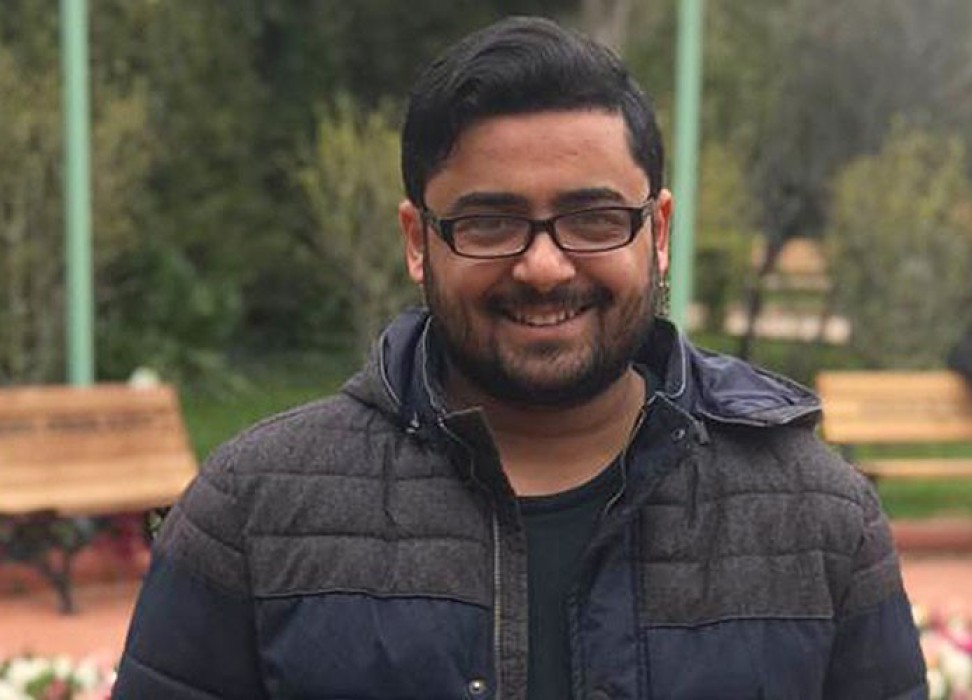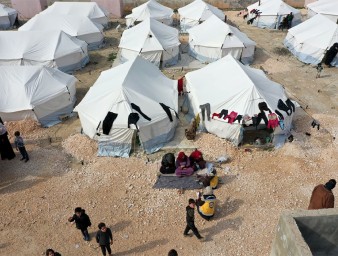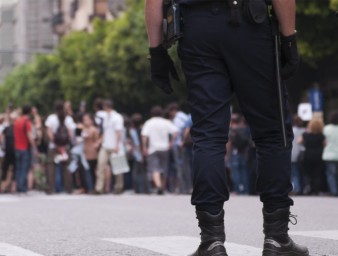A Syrian lawyer’s battle for justice and human rights
14 January 2020

"I had to leave because there was an execution order against me," he said. Jalal was working as a lawyer, and together with many of his colleagues, he had joined the revolution against the government. It was 2011, Jalal was 25, and the war in Syria was just beginning.
Jalal first left government-controlled Damascus to go and live in Deir Ezzor, an area in north-eastern Syria that was at the time an opposition stronghold. But when ISIL took control of that zone, he began to fear for his life.
He was forced to flee to Gaziantep, in neighbouring Turkey.
Eight years later, Jalal's country has been ripped apart by a war that shows no sign of ending. Countless men, women and children have been killed or injured, and millions have had to flee. They are struggling to make their lives as refugees outside of Syria, or have been displaced inside their own country, millions trapped and living in dire conditions in camps with little access to basic services.
As the UN High Commissioner for Human Rights, Michelle Bachelet said last year: "During the early years of this murderous conflict, when the casualties were in the tens, then hundreds, then thousands, the world showed considerable concern about what was happening.
"Now, airstrikes kill and maim significant numbers of civilians several times a week, and the response seems to be a collective shrug."
While the war in Syria fades from the spotlight, it is people like Jalal, who despite what they themselves have been through, are working tirelessly to bring attention to the severity of the continuing human rights violations in the country.
He is now the director of an organisation called Justice for Life. Established in 2015 with teams inside Syria and out, its main objective is to document human rights violations, focusing on what is happening in the Deir Ezzor region. Through interviews with victims and witnesses, the organisation has documented hundreds of rights violations such as killing under torture, extrajudicial killings, and disease and malnutrition as consequences of besiegement.
Jalal's own personal desire to speak out against the atrocities has stemmed from a need to provide a balanced voice: "I wanted to address these violations objectively and neutrally, and to be the voice of these victims. It was an attempt to find a voice that is not influenced by any of the warring parties, that expresses the needs of victims, and that can be fair."
His organisation also engages with international human rights bodies to report its findings, including to the Human Rights Council. It has recently signed a Memorandum of Understanding with the International, Impartial and Independent Mechanism investigating war crimes in Syria.
UN Human Rights has also interacted extensively with the organisation on the human rights situation in northeast Syria. Justice For Life has taken an active part in the Human Rights Reference Group, an informal coordination group bringing together Syrian humanitarian and human rights individuals and organisations operating from Turkey.
The voices of youth victims in Deir Ezzor, which were documented by Justice for Life, were also made public through a recent UN Human Rights campaign.
"We have become a hub for victims," said Jalal. "People are now more accepting of the fact that human rights mechanisms are available to them. So now, men, women and children are coming to us without fear. This building of trust in the community has been a major success factor, which we hope will help us achieve the ultimate goal: justice."
Now married with a son, Jalal still dreams to return to Syria one day.
His dream is for a peaceful country, with justice for all. He believes it is not an impossible dream. "We want to return to a country where there is rule of law, equality, where everyone enjoys the same rights and obligations, and where all components of society are respected. We want freedom of expression, and freedom of religion.
"The Syrian people must agree on ending the war, speaking to each other, and accepting each other."
Disclaimer: The views, information and opinions expressed in this article are those of the persons featured in the story and do not necessarily reflect the official policy or position of the Office of the UN High Commissioner for Human Rights.
14 January 2020



